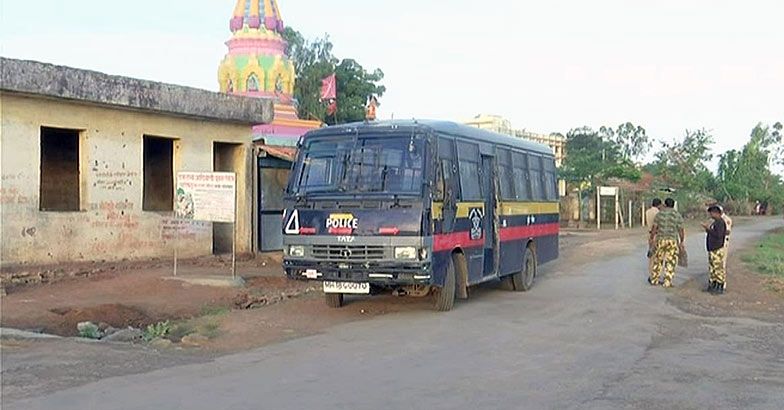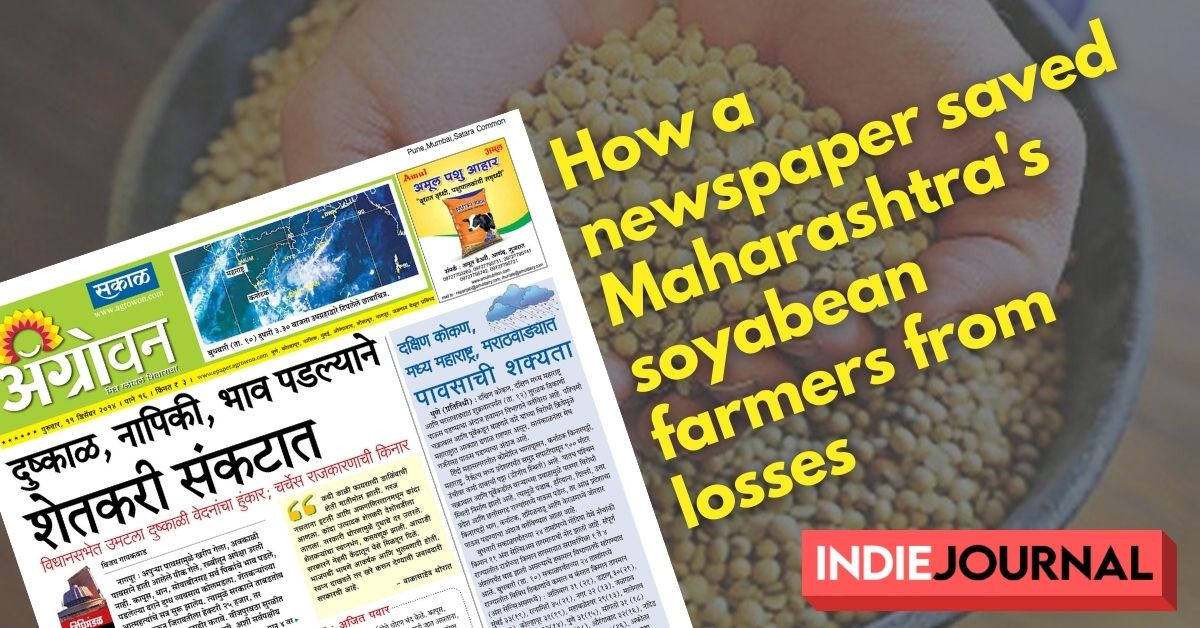India
The Whatsapp Menace
Lynchings in the time of Instant Messaging

The Rainpada village in Dhule district bears a deserted look. Homes are empty, guarded under tight security by the Dhule Police. The government Ashram School near the village does not have a single student attending. Many villagers have fled their homes fearing arrest.
The bloodstains can be seen on the floor of the Gram Panchayat where five people were lynched by a mob here on Sunday.
The five, from a village in Solapur in southern Maharashtra, had come to these parts of northern Maharashtra. The five, Appa Ingole, Bharat Bhosale, Rajesh Bhosale, Bharat Malve and Dadarao Bhosale had arrived at Pimpalner on Saturday with their families. They had left for Rainpada from Khave village in Solapur,
They were Nathpanthis, a nomadic tribe whose members travel all over to seek alms, sometimes in the form of food, cloth and sometimes, money. They are not beggars. It is not the only community which seeks alms in the country, there are thousands of such known and unknown nomadic tribes in India.
Nathpanthis typically wear a saffron attire, keep a long beard and wear big earrings. Like them, other locals and nomads like Bhats, Gosavis, Nakalkaris, Gondhalis, Potraj etc, visit villages and seek alms. All these are traditionally common in rural India. These faces are not alien. But in what happened at Rainpada, there was driving force, that of fake social media messages which made the common villagers commit an inhuman crime of lynching the five.
Over the past few weeks, rumors were flying in the village and the nearby region that a group of child traffickers was active in the area. It was nothing but a random video that has been going viral on many WhatsApp groups, having already caused havoc in Assam, Tripura, West Bengal among many.
The victims lynched by the mob had in their possession, a certificate issued by the Sarpanch in Rainpada. It clearly read that they were travelling around for their survival and had left the village followed by a cycle of continuous droughts. 23 suspects have been arrested by the police for the lynching, while others have fled, probably to the boundary regions of Maharashtra and Gujarat, which is about 35 kms from Pimpalner, where the crime has been registered.
Barely ten hours later, another five people, including a two year old boy and two women, were attacked by a mob in Malegaon in Nashik,right next to the Dhule district. Thanks to a timely intervention by some locals and the police, lives were saved. The victims were residents of a village in the Parbhani district.
From the fateful murder of Mohammad Akhlaq in Dadari by a violent mob in 2015 to this gruesome murder of five men in Dhule, all are victims of the violence erupted due to fake social media messages.
As more Indians, especially in rural areas, get connected to the internet and social media, communal clashes, mob lynching and personal attacks have increased, not just in their numbers, but also the extremity and depravity of the violence.
Recently, a transgender person was killed and two were injured in Hyderabad, linked to other such fake videos of child traffickers and robbers. In May this year, a widely circulated video and a message depicting and describing a notorious kidnapping and burglary gang took two lives in mob killings in Telangana.
Cheap data packs and low cost smartphones have disrupted the telecom market and flamed the growth of internet in rural India. WhatsApp is the most popular instant messenger currently. Ease of adoption and use has made India, its biggest market with 16 crore monthly users compared with 15 crore for its owner, Facebook. Only a smartphone and a phone number is required to send an instant message to hundreds of people at the same time.
Dadasaheb a young farmer from Partur in Jalna district is the founder member of an agriculture self help group named ‘Karleshwar Shetkari Bachat Gat’ and has also created a WhatsApp group for the internal communication of members, he says, ‘As a group administrator, what we used to get as news was many a times not authentic. We all were not aware. During demonetization many forwarded messages like the newly issued notes having an ‘electronic chip’ incorporated in them or PM Narendra Modi asking to boycott Chinese lighting and crackers, were all fake news. But we had believed it then.”
Rashmi Aglawe, a Social Media and Marketing strategies expert, says, “Such messages rarely originate from people. There are economical and political driving forces behind them. For example it may start with featuring a funny meme of a political leader, and later spread hatred message about particular community spreading communal tension and riots.”
“There are active teams who create these messages like daily jokes, good thoughts, general knowledge, emotional poem and what not. Raw videos are not shot by ordinary people in the rural area, but unfortunately they are produced and altered by professionals in studios, with a specific purpose in mind.”
Sanjana Sawant, an Independent Psychologist, says, “Many a times these messages are designed to look like a News item. The messages having an emotional appeal, are given a feeling of legitimacy by giving names of police officials and random contact numbers,” adding, “The appearance and the presentation is made more effective by it being forwarded by someone you know. This creates an impression of authenticity and urgency.”
Dr. Madhavi Reddy, the Head of the Department of Media and Communication studies at the Savitribai Phule Pune University, shares her view, “It is difficult for a common man, especially for new smartphone user to spot fake news and hoaxes circulating online. In Facebook, at least we can track it but in Whatsapp, it is very difficult,” adding, “If they work on the platform itself, one can find the origin of the message and action can be taken. I think some system of flagging these fake forwards must be embedded in the app where people can flag a fake or inflammatory message.”
Rahul Borkar, the Chairman and founder member of Sakal Nathpanthi Samaj Sanstha, says, “What happened at Rainpanada was very unfortunate. The viral fake video was the true culprit. It is a tragedy that some communities are still seen as criminals with a prejudice and such fake videos add to it. There are many communities like us which seasonally migrate in similar fashion. I fear for their safety now.”
The Maharashtra state on Monday announced a compensation of Rs 5 lakh to the families of each of the five victims. The Culprits will be arrested and prosecuted, but five men will never return back to their homes.





